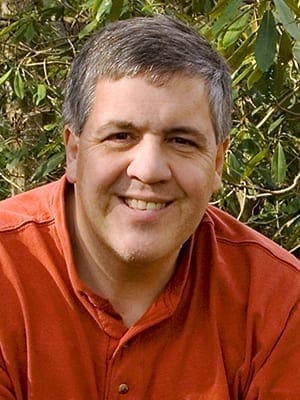The second Sunday of Easter was designated as Earth Stewardship Sunday in the denomination I serve.
One of the most meaningful Easter messages for me is God’s ability to bring good from bad situations. This is especially applicable to God’s care for creation.
As I reflect on how the earth has been treated the past 100 years or so, it is clear that this has not been a good situation.
We have polluted once pristine waters, fouled the air, destroyed incredible amounts of rainforests, literally removed mountains, hastened the extinction of numerous flora and fauna, and apparently altered the climate at the same time.
I’m not sure how any of this could be considered good. I do believe, however, that the God of resurrection is at work and that it is, indeed, God’s desire to bring good from this bad situation.
When I first became interested in creation care 25 years ago, there were not a lot of books to be found on Christianity and the environment. That has certainly changed, as hundreds of such books are now available.
Two decades ago you rarely heard about churches being intentional about creation care and ecological responsibility. That, too, has changed.
In my denomination, there are a growing number of churches that have made commitments to be “Green Chalice” congregations by regularly remembering and acting on our divinely given responsibility to be good stewards of God’s earth.
I don’t know what’s happening in other denominations, but I hope that there, too, a growing commitment to creation care can be found.
About 45 years ago, there was much discussion about whether Christianity had contributed to the ecological crisis by espousing an anthropocentric understanding of the human role in creation.
Some said that along with Christianity came the idea that nature is not sacred but disposable and that humans are not really a part of nature but are above it.
There may have been some truth to these arguments, but it truly does seem that more and more Christians are beginning to recognize that we are, indeed, a part of nature and that God has given us the role not of dominating nature but tending to and caring for it.
Hopefully, with this better understanding of our role, we can start doing what we were supposed to all along.
Obviously, we cannot undo all the damage that has been done, but there are areas where restoration is possible.
Working together, we can help others, including our government officials, to see the moral and divine imperative to treat the earth and its resources in a wiser and more sustainable manner.
Through caring for creation, we can provide those who follow us with a healthier planet, which will result in healthier lives for us too, as well as more opportunities for God to reveal himself through creation.
This may seem overly optimistic or perhaps even impossible, but, once again, I truly believe that God’s specialty is bringing good out of bad situations.
Having Earth Stewardship Sunday fall closely to Easter is a good thing. It reminds us all that there is, in fact, hope for all of us and for creation itself.

Chuck Summers is a pastor of the First Christian Church (Disciples of Christ) in Henderson, Ky. He is also a photographer whose work has appeared in numerous national magazines and calendars, and he has published three photography books. A version of this article first appeared on Seeing Creation, a blog Summers co-authors with Rob Sheppard, and is used with permission.
Chuck Summers is a pastor of the First Christian Church (Disciples of Christ) in Henderson, Kentucky.

